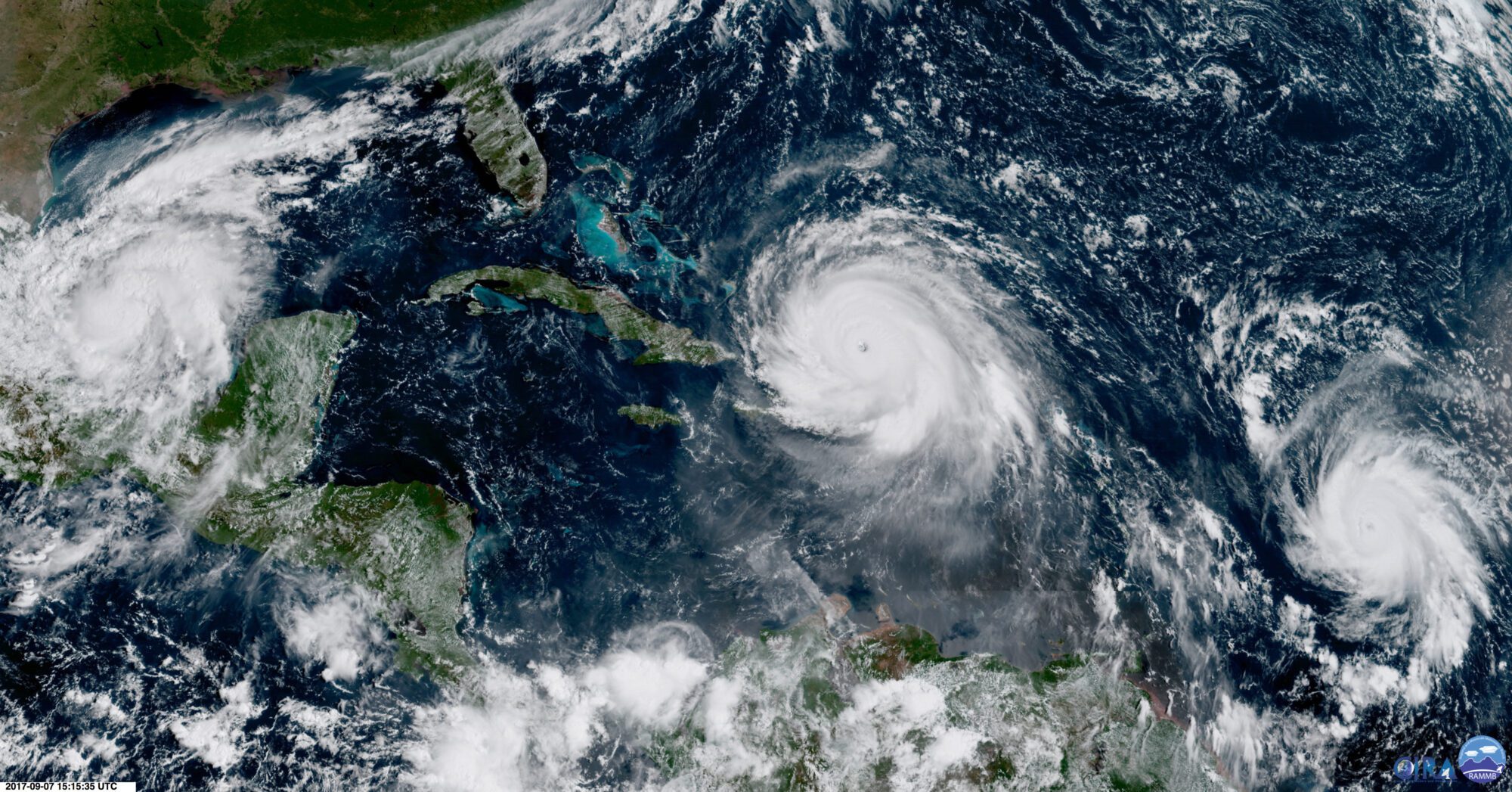
In this geocolor image GOES-16 satellite image taken Thursday, Sep. 7, 2017, at 11:15 a.m. EDT, shows the eye of Hurricane Irma, center, just north of the island of Hispaniola, with Hurricane Katia, left, in the Gulf of Mexico, and Hurricane Jose, right, in the Atlantic Ocean. Irma, a fearsome Category 5 storm, cut a path of devastation across the northern Caribbean, leaving at least 10 dead and thousands homeless after destroying buildings and uprooting trees on a track Thursday that could lead to a catastrophic strike on Florida. (NOAA via AP)
- The Mississippi Insurance Department suggests having a “Go Bag” prepared well before a storm is set to make landfall.
While the first official day of summer is more than a month away, the 2024 hurricane season begins in two weeks. Hurricane season starts on June 1st and lasts through November 30th.
Mississippi officials are warning residents who may have become lackadaisical in their storm preparation to pay attention and make a plan now to stay safe this hurricane season.
While the Magnolia State was not directly affected by a major hurricane last season, there were 20 named storms, 7 of which became hurricanes. Predictions for this season are expected to be released by the National Oceanic and Atmospheric Administration (NOAA) within the next week, but early estimates are warning that the 2024 season could be quite active.
Hurricanes bring a trifecta of heavy rains, strong winds and the potential for flooding, including to areas far from the coastline. Due to the potential for storm surge, residents along coastal areas are often encouraged to evacuate when a major storm approaches, but as NOAA notes, everyone in a storm’s path should consider evacuation when it’s suggested by emergency response agencies.
The Mississippi Insurance Department suggests having a “Go Bag” prepared well before a storm is set to make landfall. Contents of the “Go Bag” should include all of the family’s important documents, such as social security cards stored in a waterproof container, printed or digital list of the contents in the home, cash, necessary medications, a battery powered radio, and at least a gallon of drinking water per family member. Pets should also be considered in the preparation as they will need water and food.
“It’s imperative that Mississippians have a go-kit year-round with at least three days’ worth of food, water, and other supplies for anyone with special medical needs. Everyone’s go-kit will look different,” said Malary White, Chief Communications Officer for the Mississippi Emergency Management Agency (MEMA).
Anyone in the path of the storm who decides to “ride it out” should also prepare, but on an even greater level.
“Hurricanes are not just a coastal disaster. They can have many lingering effects, such as heavy rains and flooding, that can impact an entire state,” White explained.
Families who sit tight will need to be prepared for extended periods without electricity. The stronger the storm, the longer the power outage could last.
“Mississippians should plan for prolonged power outages following a disaster. Keep chargers, flashlights, and cash on hand,” White added.
If the expense is within budget, consider a generator for long power outages to keep a refrigerator running and fans blowing in the hot Mississippi summer. Be sure to use the generator outside of the home at least 20 feet from the nearest exterior wall, NOAA noted. Generators produce carbon monoxide, a dangerous gas that can be fatal in a confined space.
Households that decide to “ride out” a storm should be prepared with plenty of drinking water for everyone in the family for at least a week. They will also need flashlights and a battery powered radio to stay up to date on recovery efforts. A supply of nonperishable foods, such as canned and dried, along with a camp stove can provide some comfort. Assistance in the wake of a hurricane may be weeks out as crews work to clear roads affected by storm damage.
Once the storm passes, avoid downed power lines even if they appear to be without power. Power lines can also be hidden under flood waters, NOAA’s tip sheet reminds citizens. Flooded roads should not be traversed in a vehicle or by foot. While it may appear as through the water is shallow enough to drive through, keep in mind that the road underneath may be washed out. Additionally, it’s hard to see the edges of the pavement through murky flood waters. Vehicles can float and be swept away in as little as 12 inches of water. Flood waters also contain various chemicals from surrounding areas, along with bacteria and even animals that can be harmful, NOAA states.
In the lead up to hurricane season, MEMA said this is a good time of year to review your home insurance policy.
“Insurance is the key when it comes to recovering from a disaster. FEMA Assistance is never a guarantee,” White said. “On average, the most a homeowner typically receives from FEMA’s Individual Assistance program in our state is a little over $3,500. That amount varies based on the needs of the applicant. So, we encourage citizens to invest in insurance and understand those policies.”










